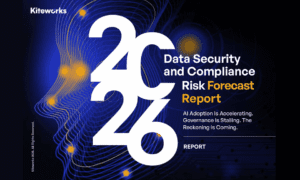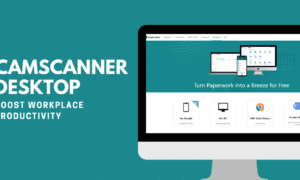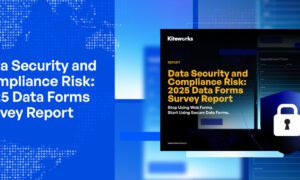1. Can you tell us about your company, Actifile, and what it does?
Actifile is a data security company for the modern enterprise. Companies today are overloaded with data, moving around constantly on any number of systems. There is a mass of data we have never witnessed before and it will only get larger.
Think about how we now store so much of it in the cloud. Think about all of the different email clients we use and the thousands of apps on the market that our employees use to read, edit, store, and share folders and documents.
Our solution identifies all of this data, assigns a dollar value to it if there is a breach, and continues to monitor this data around the clock while offering one-click encryption of any data you choose to protect.
2. You are at your third career step, being a CIO and PM before: What made you do the changes and how has your background benefited your current role as an entrepreneur?
The changes I made in my career are all the result of a strong desire to improve my capabilities and to inspire others to conquer new heights. My role as a CIO provided me with a deep understanding of how IT people work, what helps them succeed and what keeps them awake at night. Working with MSPs and MSSPs these days, I can empathize with their feelings and concerns and help them accordingly. My role as a product manager helps me to prioritize what is really important product wise, as such, provide the right guidance to our product and R&D teams. As we are re – imagining the world of Data Security, this crystal clear understanding of the product world, helps us build the automatic, comprehensive, and easy-to-use data security platform our customers require.
3. Who are Actifile’s target customers and how do you help them?
Our largest customer base is Managed Service Providers (MSPs) who have multiple clients and manage hundreds of endpoints. Many MSPs offer security solutions to their customers, but others have had a slow go at it. This is where we can help them.
We have a unique offering based on various levels that allow the MSP to get a foot in the door about providing data security. On tier 1, the MSP is able to offer data monitoring that allows its client to see just how much data they have and the vulnerability of that data becomes apparent.
The client inevitably will ask for the extended module, which includes automatic encryption and transparent decryption. This is a big win for the MSP as this helps them to increase revenue per client and begin their ascent to achieving MSSP status.
4. For which industries is data security most vital?
Arguably, it is vital to protect your data no matter which industry you’re in. However, some industries like healthcare and financial services deal with such sensitive data that you must look at several factors. For one, what are the penalties for not protecting data? HIPAA is a prime example. Stiff fines and even prison time can result from improper storage and protection of patient data.
Another question is what is the fallout for the customer if their data is stolen? Financial service is an example of an industry that stores personal information that, if put in the wrong hands, can destroy the lives of its customers. This data can be sold and resold on black markets. With the right information on an individual, thieves can assume the victim’s identities wreak havoc on their financial life, from taking out loans in their name to emptying their bank accounts. This isn’t to say that data is less important to other industries. Trade secrets, for instance, can easily be stolen and sold to competitors.
5. All my sensitive data is in the cloud. Should I worry about data security?
Think about what this means for a minute. Data that organizations utilize for their daily activities is moving back and forth between distant locations. Traditionally, we used to keep records on paper and store them in filing cabinets. Today, this data can be stored in multiple data centers for redundancy. This presents more opportunities for thieves to steal your data since it now exists in many places. So, should you be worried? The short answer is yes. But solutions like Actifile protects this data at the source and secure all endpoints where this data is being shared.
6. How has the data security landscape changed in the past decade?
The data security landscape has changed significantly in the past decade due to the increasing amount of data being generated and stored and the growing number of threats to data security.
One significant change in the data security landscape has been the increasing importance of cloud computing. Cloud computing has many benefits, allowing businesses and organizations to store and access data and applications over the internet, rather than on local servers or personal devices. With the benefits come new security challenges, as data is now stored and transmitted over the internet, making it more vulnerable to attacks.
As a result, data security in the cloud has become a major concern. Companies that provide cloud computing services have had to invest heavily in security measures to protect their customers’ data.
Another major change in the data security landscape has been the increasing sophistication of cyber threats. Hackers and other malicious actors have become more skilled at finding and exploiting vulnerabilities in systems and networks, and they have developed a range of tactics, such as phishing scams, ransomware attacks, and malware, to gain access to sensitive data.
In response, businesses and organizations have had to invest in more advanced security measures, such as artificial intelligence and machine learning, to protect against these threats.
Overall, the data security landscape has become much more complex in the past decade, and it will continue to evolve as technology and cyber threats continue to advance.
7. What does the future hold with regard to threats to data?
That’s a good question and quite challenging, with the dynamic landscape. It is highly expected that we will see a wide range of evolving threats to data security.
In the coming years, these are the potential trends revolving and evolving around data security.
- Increased use of artificial intelligence and machine learning: These technologies have the potential to be used to improve data security, but hackers could also exploit them to automate and scale their attacks.
- The continued growth of the internet of things: The proliferation of connected devices and systems creates new attack vectors for hackers to exploit. Securing these devices will be a significant challenge.
- Rise of quantum computing: While still in the early stages of development, quantum computers can break many of the cryptographic algorithms currently used to secure data. This could significantly impact data security in the future.
- Increased focus on supply chain attacks: Hackers may target the suppliers and partners of businesses and organizations to gain access to their systems and data.
- Overall, businesses and organizations must stay vigilant and proactive in their efforts to protect against threats to data security. This may involve implementing robust security measures and regularly updating and testing them to ensure they are effective against the latest threats.
8. What advice do you have for MSPs that haven’t delved into the data security landscape yet?
I suggest prioritizing the securing of your data. As threats continue to evolve, those threats will become more apparent to your clientele. Rather than suffer a decrease in reputation, MSPs are positioned to offer these services and bundle them into the different plans they offer customers. I feel when this is done, it will be a win-win all around and will be a key contributing factor in achieving MSSP status; with everyone enjoying peace of mind and the ultimate in data security.
Actifile, is a pioneering cybersecurity company based in Herzliya, Israel. Guy has over 25 years of experience in the Israeli high-tech industry and is passionate about combating cyber threats and protecting businesses. He played a major role in developing Actifile’s revolutionary encryption-based data security software. His business and marketing background gives him valuable insights into the challenges facing modern businesses and MSPs and helps him to deliver tailored and scaleable cybersecurity solutions.



































